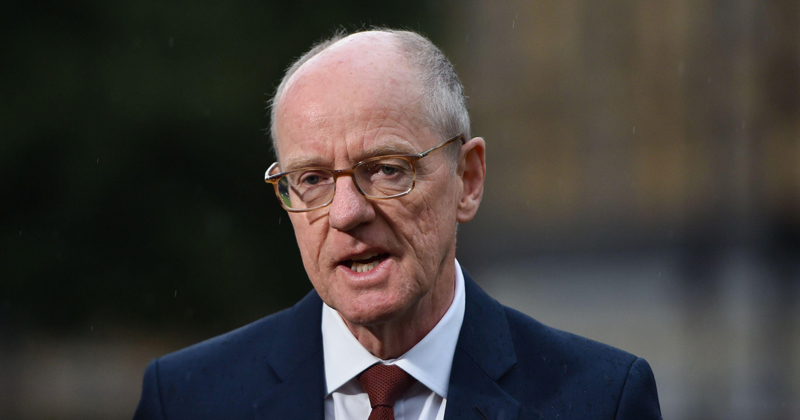Some tutoring under the government’s flagship catch-up programme may have harmed pupils’ outcomes, while tuition commissioned directly by schools likely led to only “small” boosts for pupils, an evaluation found.
The independent study focused on the 2021-22 academic year of the National Tutoring Programme, when it was run by Randstad, the HR firm later axed amid widespread criticism.
However, the evaluation is heavily caveated, so much so that the report even cautions against over-interpreting results “because of the complexities” involved in the analysis.
Sir Peter Lampl, chair of the Sutton Trust which helped to form the NTP, said the evaluation most likely “reflects the impact that the drive for scale over quality had” in its second year.
“It’s important that we learn lessons from those initial delivery challenges to build a sustainable NTP for the future.”
School tutoring led to small boost
The National Foundation for Educational Research (NFER) report found school-led tutoring was associated with improvements in maths at key stages 2 and 4 equivalent to roughly one month’s additional progress.
It also found “very small positive effects” on English outcomes. But these effects “equated to less than one months’ additional progress, so may not reflect meaningful changes for pupils”.
The majority of tutoring – 81 per cent of courses that year – was done through this route.
The scheme also offered tutoring through tuition partners and academic mentors over which Randstad had more control. But evidence for these routes suggested participation was “consistently associated with negative effects” on English outcomes.
In key stage 4 maths, using tuition partners was also associated with “small negative effects”.
Geoff Barton, general secretary of heads’ union ASCL, said “it should come as no surprise that tutoring is at its most effective when it is delivered by the people who know the pupils best – teachers and leaders”.
Doesn’t mean tutoring is ‘ineffective’
However, the NFER said the difference in tutoring route results “may be due to differences in implementation”.
The Education Endowment Foundation, one of the charities which ran the NTP in its inaugural year, previously found that the average impact of small group tutoring was four months of additional progress.
The NFER suggested the difference was down to the “evaluation design and available data”, as well as the “limitations of the analysis” and “implementing the NTP at scale, rather than tutoring being ineffective as an approach”.
The evaluation also stated that “no data about the subject in which tutoring was received was available” for school-led tutoring, meaning the results may underestimate the “true effect”.
Susannah Hardyman, CEO of one of the tuition providers Action Tutoring, said her organisation had “raised serious concerns about the reliability and accuracy of data collection as part of this study with the DfE back in early 2022”.
“It isn’t much of a surprise to us that the evaluation is littered with caveats, producing a somewhat inconclusive result.”
She said Action Tutoring data shows “excellent progress compared to their disadvantaged peers”.
Ed Marsh, CEO at the Tutor Trust, said schools had to complete “a number of burdensome administrative procedures” to use tuition partners (TP) under Randstad.
During year two, standards were also watered down, with schools that used TP told they could do 1:6 group sizes – up from 1:3.
Professor Becky Francis, EEF chief executive, said the NFER report “should not be confused with an overall measure of tutoring’s potential to support learning”.
Low take-up among poorer year 11 pupils
The evaluation pointed out the “key aim of the NTP was to help reduce the attainment gap for disadvantaged pupils”.

It did find that school-led tutoring was associated with “small positive impacts” on English and maths outcomes for pupil premium pupils.
DfE take-up figures show that just 50.5 per cent of tutored students were eligible for pupil premium that year. But only 35 per cent of year 11 pupils – one of the target groups for catch-up – were from disadvantaged backgrounds.
The NFER has urged ministers to reintroduce a pupil premium target, which was controversially scrapped.
Since Randstad was axed, schools have been given all their tutoring money directly. Three contractors now oversee quality assurance and training – but the NTP subsidy is due to end this year.
Schools minister Nick Gibb claimed the report “shows the positive impact” of the NTP. It had “levelled the playing field”, he added.
















Your thoughts